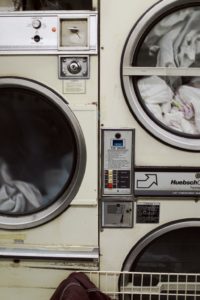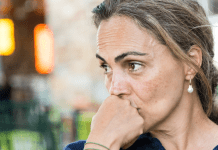CW: menstruation, reproductive health, surgery
A month after my 32nd birthday I made one of the most important decisions of my life. And it’s a decision that may make many readers uncomfortable, which is exactly why I’m writing about it.
Four years before this decision, I gave birth to my one and only child. It was (and you can hate me for this part) an absolutely perfect birth, fast and free of complications. I spent the next six weeks as new mothers do, bleeding.
And then, I spent 50% of the next four years doing the same. Yes, you read that right. Post-birth, my periods lasted nearly two weeks. Roughly two weeks every month for four years adds up to around 104 weeks of bleeding. So when the bleeding hadn’t stopped after years of progressive interventions, I decided to have a hysterectomy.
Before I go any further, it should be noted I am neither a medical professional nor reproductive health specialist. This is not medical advice. This is just a brief list of reasons why a hysterectomy was the right choice for me, and an attempt to do my part to destigmatize menstruation (typical and atypical) and reproductive health.
Reason 1: I don’t want any more children
Long before I even considered a hysterectomy, I knew I was done having children. This, I understand, is not the case for every woman experiencing abnormal or prolonged bleeding. However, knowing more children are not in my future honestly made the whole thing easier, and it gave me full permission to make the decision based solely on what was best for my health.

Reason 2: The length and intensity of my periods affected my quality of life
Having prolonged periods affected my quality of life in all the usual ways. Physical discomfort, fatigue, moodiness (mostly a byproduct of the discomfort), always needing but often forgetting hygiene products, etc…
But also in more subtle ways that, over time, impacted my quality of life more than the cramps and irritability. I was constantly (like daily) washing underwear, clothing, towels and sheets I bled on and through. Given the intensity of my periods, a three-month supply of tampons and pads would last only the first week.
And that is to say nothing of the impact on intimacy with my husband that accompanies two weeks of menstruation. Oh, and let’s not forget the number of events and activities cut short by a whispered: “We need to go home, NOW!”
On a side note, if you routinely have people of childbearing age at your home, please consider keeping an extra supply of sanitary products in your guest bathroom. It would really help people like me who often find themselves out of purse-supply tampons/pads at the most inconvenient and conspicuous times.
Reason 3: It made the most sense
Surgery of any kind is not to be taken lightly. Hysterectomies, though, seem to top the list of “extreme” in many peoples’ minds. I’ve had an appendectomy, and my arm is patched together with a plate and some screws – both out of urgent, critical need – but when people hear I elected to have a hysterectomy, their responses usually prompt me to justify the decision with some form of “I tried everything else” in an effort to make it seem both urgent and critical. But the truth is, I tried a lot of things, but not everything. Why? Many of the interventions didn’t make sense for me from a resource, time, cost, or potential outcome perspective.
Also, I’m not convinced a health issue has to be urgent and/or critical for it to be taken seriously or dealt with seriously.
There is a whole continuum of interventions, along which I tried numerous things like “waiting and watching,” switching birth control, going off birth control, and changing my diet and lifestyle. I did not, however, have a uterine ablation — a theoretical step below a full hysterectomy.
 Still, because we couldn’t figure why my periods were so atypical (no endometriosis, cancer, fibroids, or other physical abnormalities) after two and half years of earnest effort to improve the situation, coupled with not wanting more children and the negative impact my periods were having on my career, social life, marriage, and parenting, with the support of my doctor, a hysterectomy made the most sense.
Still, because we couldn’t figure why my periods were so atypical (no endometriosis, cancer, fibroids, or other physical abnormalities) after two and half years of earnest effort to improve the situation, coupled with not wanting more children and the negative impact my periods were having on my career, social life, marriage, and parenting, with the support of my doctor, a hysterectomy made the most sense.
Making it an even easier decision was the fact my doctor never once second-guessed my resolve when it came to not wanting more children, and he never once questioned my day-to-day experience or whether my husband was on board (he was, but how he felt about my uterus wasn’t my main concern, or even in my top five concerns). Knowing the decision was 100% entirely rooted in taking care of my short- and long-term health was incredibly empowering and affirming.
And not to be flippant, but I was done with my uterus from a reproductive standpoint. There was no reason to continue living with the discomfort and inconvenience I experienced every two weeks, and frankly I had nothing to gain or prove by trying to tough it out for two more decades.
Honestly, a hysterectomy at 32 was and continues to be one of the best decisions I’ve ever made for my health. Nearly every aspect of my life has improved in the months since, and as dramatic as it sounds, I didn’t realize the profound degree to which abnormal menstruation was negatively affecting my life until it was no longer an issue. So, if you’re experiencing something similar fellow mama, just know you’re not alone and there will always be extra tampons at my house if/when you stop by.
















